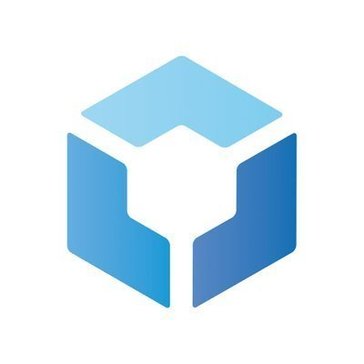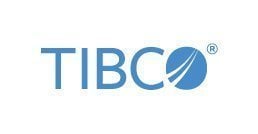Top Blockchain Analysis Tools Softwares
Blockchain Analysis Tools software plays a crucial role in navigating the complexities of blockchain technology. This category of software enables users to track and analyze blockchain transactions, enhancing transparency and security. Businesses and regulatory bodies leverage these tools to monitor activities and ensure compliance with legal standards. The software provides insights into transact... Read More
8 companies found
SUN ZU Lab
Product Description
SUN ZU Lab offers a straightforward and reliable software solution designed specifically for small to medium-sized businesses looking to streamline their operations. Our platform brings together various tools that help you manage day-to-day tasks more efficiently, all in one place. At SUN ZU Lab, we focus on making your life easier by providing features that are both powerful and easy to use. Fro... Read More
Users
- • No Data
Industries
- • No Data
Market Segment
- • No Data
Product Description
QLUE is a software designed to make managing your business smoother and more efficient. Our platform is geared towards helping companies streamline their operations and improve their overall performance. With QLUE, you get an intuitive tool that brings various aspects of your business together in one place, making it easier to handle everything from project management to team collaboration. One o... Read More
Users
- • No Data
Industries
- • No Data
Market Segment
- • No Data
Product Description
Cobo DeFi is a software solution designed to help organizations streamline their cryptocurrency operations and DeFi (Decentralized Finance) activities. Focused on providing a user-friendly experience, Cobo DeFi offers tools to manage, track, and optimize crypto assets efficiently. The software provides a centralized dashboard where users can view all their crypto accounts and assets, simplifying... Read More
Users
- • No Data
Industries
- • No Data
Market Segment
- • No Data
Crystal Blockchain
Product Description
Crystal Blockchain is a powerful tool designed to simplify and secure your blockchain and cryptocurrency transactions. If you are a business looking to safely navigate the world of digital currencies, Crystal offers you a comprehensive suite of tools that bring clarity and security to your operations. With Crystal Blockchain, you can monitor, track, and analyze blockchain activities with ease. It... Read More
Users
- • No Data
Industries
- • No Data
Market Segment
- • No Data
Chainalysis KYT
Product Description
Chainalysis KYT (Know Your Transaction) is a vital tool for businesses wanting to manage the risks and prevent misuse of cryptocurrencies. Think of it as a security guard for your digital assets, keeping an eye on transactions in real-time. This software helps detect suspicious activity and makes it easier for compliance teams to remain in line with regulatory requirements. One of the key featur... Read More
Users
- • No Data
Industries
- • No Data
Market Segment
- • No Data
Product Description
Blockpit is a software company dedicated to helping businesses manage their cryptocurrency tax reporting and compliance needs. With the surge in cryptocurrency transactions, managing tax obligations can be complex and time-consuming. Blockpit makes this process straightforward and efficient, ensuring that users stay on top of their tax responsibilities with minimal stress. Our intuitive platform ... Read More
Users
- • No Data
Industries
- • No Data
Market Segment
- • No Data
Global Ledger protocol
Product Description
Global Ledger is a software designed to simplify your financial record-keeping process. Whether you're running a small business or managing multiple accounts for a larger organization, Global Ledger offers a straightforward way to keep track of your finances. You won't need to deal with the complexity of traditional accounting; our software makes it easy to record, track, and analyze your financia... Read More
Users
- • No Data
Industries
- • No Data
Market Segment
- • No Data
TIBCO Cloud AuditSafe
Product Description
TIBCO Cloud AuditSafe is designed to help businesses maintain compliance and enhance transparency in their operations. It's a robust solution that simplifies how you manage and track all your audit-related activities in the cloud. Whether you're dealing with financial audits, compliance reviews, or just looking to keep better records, TIBCO Cloud AuditSafe provides a centralized place to store and... Read More
Users
- • No Data
Industries
- • No Data
Market Segment
- • No Data
What are blockchain analysis tools used for?
Blockchain Analysis Tools software is a critical component in the digital landscape, especially with the rise of cryptocurrencies and blockchain technology. These tools serve various purposes vital for understanding, monitoring, and managing blockchain data. They support individuals, businesses, governments, and financial institutions in their interactions with blockchain networks.
Fraud Detection and Prevention
Blockchain Analysis Tools software plays a significant role in fraud detection and prevention. By analyzing transaction patterns and identifying inconsistencies or anomalies within blockchain networks, these tools help prevent fraudulent activities. They allow users to detect suspicious activities, like money laundering or unauthorized access to funds, enabling prompt counteraction.
Transparency and Compliance
Blockchain is known for its transparency, but this can pose challenges when it comes to compliance with regulatory requirements. Blockchain Analysis Tools software helps organizations ensure compliance by providing detailed insights into transaction histories. This aids in maintaining the integrity of financial systems and adherence to AML (Anti-Money Laundering) and KYC (Know Your Customer) regulations. Regulators and auditors use these tools to trace transactions and verify the legitimacy of funds.
Market Research and Investment Analysis
Blockchain Analysis Tools software offers valuable data for market research and investment analysis. Investors and analysts use these tools to study transaction trends and assess the health of blockchain projects. They help in understanding market sentiment and making informed decisions based on real-time data. This reduces risks associated with investments in volatile cryptocurrency markets.
Enhance Security
Security is a primary concern in the blockchain environment. Blockchain Analysis Tools software enhances security by providing insights into potential vulnerabilities. They assess network performance, detect irregularities, and help mitigate threats before they become problematic. These tools provide users with increased control, ensuring safer and more secure transactions.
Transaction Tracking and Mapping
Transaction tracking and mapping is another key application of Blockchain Analysis Tools software. These tools allow tracking of cryptocurrency transactions across the blockchain. By mapping transaction flows, users can trace the origin and destination of funds, aiding in investigations and risk assessments. This feature is crucial for both law enforcement and financial institutions.
Network Analysis
Network analysis is facilitated by Blockchain Analysis Tools software. They help in understanding the structure and dynamics of blockchain networks. This includes identifying key nodes, transaction speeds, and points of failure. These insights are vital for optimizing network performance and ensuring efficient operation.
User Education
Blockchain Analysis Tools software also supports user education by providing clear and understandable data representations. This helps users, regardless of their technical expertise, to gain a better understanding of how the blockchain operates. Educating users enhances their ability to make informed decisions and reduces the risk of misinformed actions in the blockchain space.
In summary, Blockchain Analysis Tools software is indispensable for managing the complexities of blockchain technology. They support various functions from fraud detection to market analysis, enhancing security, compliance, and user understanding. These tools provide insights that are crucial for a wide range of stakeholders interacting with blockchain networks.
How do blockchain analysis tools enhance transaction transparency?
Blockchain technology is often lauded for its transparency, decentralization, and security. However, the inherent transparency of a blockchain can be a double-edged sword, as transactions, though visible, may remain anonymized within the blockchain's cryptographic structure. This is where Blockchain Analysis Tools software plays a pivotal role in enhancing transaction transparency.
Understanding the Blockchain Landscape
Blockchain serves as a distributed ledger where every participant has access to the database. Transactions are recorded in blocks, and once added, these records are immutable. However, the addresses on the blockchain are pseudonymous, which can obscure the identities behind transactions. Blockchain Analysis Tools software bridges this gap by providing deeper insight into these transactions.
Identifying Transaction Patterns
One of the key functions of Blockchain Analysis Tools software is to identify and analyze transaction patterns. By deploying algorithms to scan the blockchain network, these tools can trace cryptocurrency movements between wallets, helping to map out the connectivity and flow of funds. This mapping enables a more transparent view of the blockchain by making it easier to spot unusual patterns that could indicate fraudulent activity or money laundering schemes.
Linking Real-World Identities
Although blockchain addresses are pseudonymous, Blockchain Analysis Tools software can often correlate these addresses with real-world identities through various methods, such as clustering algorithms or data enrichment from known sources. This enhances transparency by not just showing the transaction but potentially revealing who is behind each digital wallet, bridging the gap between cryptocurrency transactions and real-world users.
Enhancing Regulatory Compliance
For organizations and financial institutions, complying with anti-money laundering (AML) and counter-terrorism financing (CTF) regulations is crucial. Blockchain Analysis Tools software aids in this regard by providing detailed transaction histories and alerts on suspicious activities, allowing for better compliance with legal standards. This heightened oversight ensures that organizations can act proactively rather than reactively concerning transaction investigations.
Providing Auditability
Auditing blockchain transactions without specialized tools can be a daunting task due to the large volume of data and complexity of blockchain ecosystems. Blockchain Analysis Tools software simplifies this by providing structured reports and analytics, making auditing not only feasible but also more thorough. These tools allow auditors to backtrack through transactions easily, thus promoting an environment of transparency.
Deterring Fraud and Illicit Activity
The transparency provided by Blockchain Analysis Tools software effectively deters illicit activities. The awareness that blockchain activities can be traced back when using these tools discourages bad actors from exploiting the pseudonymous nature of cryptocurrencies. This act of deterrence is crucial for maintaining a clean and trustworthy blockchain ecosystem.
In essence, Blockchain Analysis Tools software drastically improves transaction transparency on blockchains by demystifying transactions, linking digital activity to real-world identities, and aiding compliance and audit measures. Through these functions, they ensure that the blockchain's transparency promises are fully realized and leveraged for more secure and reliable financial ecosystems.
What features should you look for in blockchain analysis tools?
When selecting Blockchain Analysis Tools software, it's essential to consider a range of features that can effectively support the analysis of blockchain networks and transactions. Below are the key functionalities and aspects you should look for in such software:
Transaction Tracking and Visualization
- Transaction Tracing: The software should offer robust transaction tracking capabilities, enabling users to trace the flow of funds from one address to another. Effective tracking ensures that you can map out the complete transaction path.
- Graphical Visualization: Look for tools with graphical representation features, which help in visualizing blockchain networks efficiently. This can include node-link diagrams or other visual formats to better understand relationships and data patterns.
Data Integration and API Access
- Data Integration: The ability to import and export data seamlessly into other applications and platforms is crucial. Ensure the software supports integration with existing systems, such as compliance or financial software.
- API Access: Access to a robust API can facilitate automated data retrieval and processing, allowing for enhanced customizability and data analysis.
Address and Entity Identification
- Address Labels: The software should support address labeling, which helps in identifying particular blockchain addresses linked to known entities. This feature is important for understanding transaction contexts.
- Entity Clustering: Tools that can cluster addresses into entities help streamline the analysis by grouping addresses owned by the same person or organization.
Risk Analysis and Alerting
- Risk Scoring and Analysis: The software should offer risk assessment features, assigning risk scores to transactions or addresses to highlight potential money laundering or fraudulent activities.
- Alert Systems: Real-time alerting mechanisms are essential for timely detection of suspicious activities, ensuring prompt response to potential threats.
Report Generation and Customization
- Custom Reports: Blockchain Analysis Tools software should offer customizable reporting options to fit specific organizational needs. This enables users to generate tailored reports with relevant insights.
- Compliance Reporting: Ensure the tool can generate reports that comply with industry standards and regulatory requirements, providing evidence for audits when necessary.
Historical Data Access
- Blockchain History Analysis: Access to historical data is vital for trend analysis and forensic investigations. Look for software that maintains extensive blockchain history for long-term analysis.
Usability and Accessibility
- User-Friendly Interface: The software should be easy to use, with intuitive navigation and accessible features for both technical and non-technical users.
- Accessibility Across Devices: It's beneficial if the software is accessible from various devices, ensuring flexibility in analysis activities.
Security Features
- Data Security: Robust security measures are essential to protect sensitive data within the Blockchain Analysis Tools software. Look for features like encryption and role-based access controls.
- Anonymity Protection: The software should protect user anonymity where needed, especially when dealing with sensitive data and personal information.
When evaluating Blockchain Analysis Tools software, these features are critical in ensuring that you obtain comprehensive and actionable insights from blockchain data. Each feature complements others, providing a well-rounded tool ideal for sophisticated blockchain analysis tasks.
Can blockchain analysis tools help prevent fraudulent activities?
Understanding Blockchain Analysis Tools Software
Blockchain Analysis Tools software is essential in monitoring, tracing, and analyzing blockchain transactions. These tools function by examining the blockchain to identify and track digital currency movement. They provide insight into transaction patterns and uncover malicious intent, helping various stakeholders maintain a secure blockchain environment.
Identifying Fraudulent Activities
One primary function of Blockchain Analysis Tools software is the identification of potential fraudulent activities. These tools are designed to sift through extensive blockchain data, detect anomalies, and highlight irregular patterns that signify fraud. For instance, a sudden spike in transaction volumes or unusual transaction chains might indicate illicit activity. By flagging these discrepancies, blockchain analysis tools help in preemptively addressing possible fraudulent scenarios before they escalate.
Enhanced Transparency and Accountability
Fraud prevention in digital currency transactions relies heavily on transparency, which Blockchain Analysis Tools software enhances. These tools provide real-time data aggregation and visualization of transactions, aiding in the thorough examination of blockchain activities. Comprehensive visibility into transaction histories ensures that suspicious activities can be tracked back to their origins, discouraging fraudulent behavior by holding transaction parties accountable.
Risk Assessment and Mitigation
Blockchain Analysis Tools software is instrumental in risk assessment and mitigation efforts. By analyzing transaction histories and wallet activities, these tools can assign risk scores to specific wallets or addresses. High-risk scores indicate potential fraud involvement, prompting further scrutiny from financial institutions or law enforcement. Such pre-emptive identification aids in negotiating risks effectively, thereby minimizing the chances of fraud.
Enabling Regulatory Compliance
Regulatory bodies often mandate compliance with anti-money laundering (AML) and know your customer (KYC) standards. Blockchain Analysis Tools software assists businesses and financial institutions in adhering to these regulations by providing detailed analytics, which enable the identification of suspicious transactions. By ensuring compliance, these tools prevent illegal activities from penetrating the financial system, enhancing overall transaction security.
Facilitating Investigations
In instances where fraud is suspected or has occurred, Blockchain Analysis Tools software assists investigative efforts. These tools track down the transaction path across the blockchain, providing authorities with a trail that can be used to identify and apprehend perpetrators. The ability to trace stolen assets to their destination enhances investigative efficiency and improves the odds of recovering lost assets.
Building Trust within the Blockchain Environment
By leveraging Blockchain Analysis Tools software, organizations contribute to a more trustworthy blockchain ecosystem. The proactive identification and prevention of fraud build confidence among users and stakeholders, promoting widespread adoption and utilization of blockchain technologies. The increased trust filters down to various sectors, influencing how blockchain is perceived globally.
Incorporating Blockchain Analysis Tools software is a strategic move to enhance security and prevent fraud in digital transactions. By identifying fraudulent activities through detailed analysis of transactions, providing transparency, aiding compliance with regulations, and facilitating investigations, these tools serve as a formidable force against blockchain-related fraud.
How do blockchain analysis tools improve regulatory compliance?
Enhanced Transaction Monitoring
Blockchain Analysis Tools software enhances regulatory compliance by providing robust transaction monitoring capabilities. These tools allow organizations to scrutinize blockchain transactions meticulously, ensuring that all parties involved abide by legal and financial regulations. Continuous monitoring helps identify any suspicious activity or anomalies, enabling financial institutions to adhere to Anti-Money Laundering (AML) and Know Your Customer (KYC) protocols efficiently.
Real-time Risk Assessment
Another critical aspect is the real-time risk assessment provided by Blockchain Analysis Tools software. By analyzing transaction histories and patterns, these tools can assess risk levels associated with specific addresses or transactions. This functionality aids financial institutions in detecting potential illicit activities, such as fraud or money laundering, allowing companies to take immediate corrective actions and remain compliant with regulations.
Comprehensive Compliance Reporting
Blockchain Analysis Tools software offers comprehensive compliance reporting features that help organizations maintain detailed records of their compliance efforts. Automated report generation ensures that companies can produce documentation demonstrating adherence to regulations when audited. This feature is crucial for maintaining transparency and accountability, reassuring regulators and stakeholders about the organization’s compliance posture.
Identity Verification and Linking
By performing identity verification and linking blockchain addresses to known entities, Blockchain Analysis Tools software improves regulatory compliance. These tools facilitate the identification of users behind specific transactions, ensuring transparency and accountability. By correlating blockchain addresses with real-world entities, organizations can meet KYC requirements and prevent fraudulent activities.
Detection of Fraudulent Patterns
Blockchain Analysis Tools software enables the detection of fraudulent patterns, enhancing regulatory compliance. By employing sophisticated analytics, these tools identify unusual patterns, behaviors, or irregularities within transaction data. Detecting such patterns early allows businesses to protect themselves from illicit activities and ensure compliance with financial regulations.
Support for Cross-Jurisdictional Regulations
Blockchain Analysis Tools software assists in navigating complex regulatory environments, especially for organizations operating in multiple jurisdictions. These tools provide insights into region-specific compliance requirements, ensuring that businesses meet varying standards across different regulatory landscapes. By enabling adherence to diverse regulations, companies reduce the risk of legal infractions and maintain a compliant operational status.
Facilitating Audit Trails
The facilitation of detailed audit trails by Blockchain Analysis Tools software is vital for regulatory compliance. These tools record every transaction's details, allowing organizations to maintain a clear and comprehensive history of all blockchain activities. Audit trails are essential for regulatory audits, providing necessary documentation and evidence of compliance efforts.
Streamlining Data Analysis
Blockchain Analysis Tools software streamlines the data analysis process, allowing organizations to understand complex blockchain data within the context of regulatory compliance. Simplified data analysis helps companies effectively interpret transaction data, identify trends, and implement strategies for maintaining compliance. By making data more accessible and understandable, these tools support organizations in aligning their operations with regulatory expectations.
By leveraging Blockchain Analysis Tools software, organizations can significantly enhance their regulatory compliance. Through improved transaction monitoring, real-time risk assessment, and support for cross-jurisdictional regulations, these tools offer essential functionalities that align blockchain operations with legal and financial regulatory standards.
Are blockchain analysis tools effective in identifying suspicious transactions?
Blockchain Analysis Tools software is designed to scrutinize and interpret blockchain data, enhancing transparency and security in digital transactions. The principal aim of these tools is to assess, analyze, and identify patterns within blockchain data that might suggest illicit activities, such as fraud or money laundering.
Enhancing Transaction Visibility
Blockchain transactions are inherently transparent yet pseudonymous. While transaction details are publicly accessible, linking them back to real-world identities is challenging. Blockchain Analysis Tools software facilitates this process by processing and cross-referencing blockchain data with additional sources. These tools employ advanced algorithms to track and map transactions, thereby turning raw blockchain data into actionable insights.
Pattern Recognition
One of the powerful features of Blockchain Analysis Tools software is its capacity for pattern recognition. These tools can discover unusual transaction behaviors that might signify dubious activities. By recognizing abnormal spending patterns, sudden spikes in transaction volumes, or complex transaction chains, the software effectively flags suspicious activities for further investigation.
Real-time Alerts
Blockchain Analysis Tools software often includes real-time monitoring capabilities. By continuously scanning blockchain data, the software can instantaneously detect and alert users to suspicious transactions. This facilitates prompt action in response to potential threats, greatly contributing to the prevention of fraud and other financial crimes.
Compliance and Regulation Support
The use of Blockchain Analysis Tools software is instrumental in ensuring compliance with regulatory requirements. Financial institutions and cryptocurrency exchanges often utilize these tools to adhere to anti-money laundering (AML) and counter-terrorism financing (CTF) regulations. These tools provide comprehensive analysis and reports, aiding organizations in demonstrating regulatory compliance by identifying and reporting suspicious transactions.
Visualizing Connections
Blockchain Analysis Tools software provides visualization features that map connections and relationships between transactions. These visual representations help investigators see the flow of funds and understand complex transaction networks. By offering a clear view of how funds move through the blockchain, these tools allow for a deeper understanding of potentially illicit financial networks.
Machine Learning and AI Integration
Many Blockchain Analysis Tools software employ machine learning and AI algorithms to enhance transaction analysis. These technologies evolve and learn from new data, fine-tuning their ability to detect sophisticated fraud patterns. This continuous improvement ensures that the tools remain effective against ever-evolving tactics used by malicious actors.
In summary, Blockchain Analysis Tools software plays a crucial role in identifying suspicious transactions within the blockchain. With features such as pattern recognition, real-time alerts, and advanced data visualization, these tools are effective in spotting potential illicit activities, ensuring transparency, and supporting compliance with global financial regulations. By transforming complex blockchain data into understandable and actionable information, they empower users to safeguard digital assets and uphold the security and integrity of the financial ecosystem.
What industries benefit the most from using blockchain analysis tools?
Financial Services
The financial services industry stands as a primary beneficiary of Blockchain Analysis Tools software. Banks and financial institutions use these tools for monitoring complex transactions on blockchain networks. They assist in identifying patterns and anomalies that could suggest fraudulent activity. Blockchain analysis helps in regulatory compliance, ensuring transactions align with anti-money laundering (AML) and counter-terrorism financing (CTF) laws. This enhances the security and integrity of financial transactions.
Law Enforcement and Regulatory Agencies
Law enforcement agencies significantly benefit from Blockchain Analysis Tools software. These tools aid in tracing illicit activities, such as money laundering and fraud, conducted via cryptocurrencies. Agencies can track and analyze transaction data, helping them identify suspicious activities and criminal networks. This capability supports efforts in maintaining law and order by enabling swift action against cybercrimes.
Cybersecurity Firms
Cybersecurity firms use Blockchain Analysis Tools software for identifying and mitigating security threats within blockchain networks. These tools help analyze vulnerabilities and potential attack vectors in decentralized systems. By examining transaction histories and address associations, cybersecurity experts can detect and prevent unauthorized access, fraud, or data breaches, enhancing overall network security.
E-commerce and Retail
In the e-commerce and retail sectors, Blockchain Analysis Tools software is instrumental in enhancing transaction transparency and security. These industries benefit from the ability to verify and validate transactions, reducing the risk of fraud. Blockchain analysis ensures the authenticity of digital payments, offering both retailers and consumers confidence in secure and legitimate transactions.
Cryptocurrency Exchanges
Cryptocurrency exchanges are crucial users of Blockchain Analysis Tools software. These platforms operate on the transfer of digital assets, necessitating robust security measures. Blockchain analysis helps in tracking transaction flows and monitoring wallet activity, ensuring compliance with regulatory standards. This enhances trust between exchanges and their users, fostering a secure trading environment.
Supply Chain and Logistics
The supply chain and logistics industry leverages Blockchain Analysis Tools software for tracking the provenance and movement of goods. Blockchain provides a secure and transparent ledger, enhancing traceability from production to delivery. Analysis tools help in monitoring transactions at each stage of the supply chain, ensuring authenticity and reducing fraud risk. This transparency supports efficient and trustworthy supply chain operations.
Healthcare
In healthcare, Blockchain Analysis Tools software aids in securing patient data and ensuring data integrity. These tools enable secure tracking and validation of medical records and transactions. Blockchain analysis enhances patient privacy and security, allowing healthcare providers to offer efficient and trustworthy services while complying with regulatory standards.
Gaming and Digital Entertainment
The gaming and digital entertainment industries utilize Blockchain Analysis Tools software to manage digital assets and virtual currencies. These tools enable verification of in-game transactions and ownership of digital collectibles. Blockchain analysis ensures a secure environment for players, preventing fraud and enhancing trust in virtual economies.
Across these industries, Blockchain Analysis Tools software plays a vital role in enhancing security, compliance, and operational efficiency, offering profound benefits in today's digital age.







